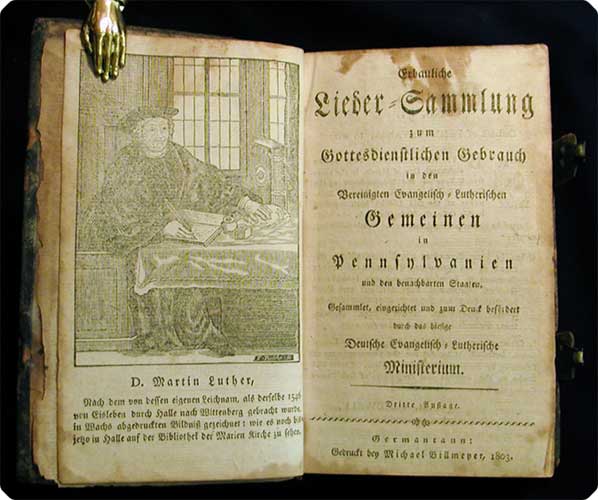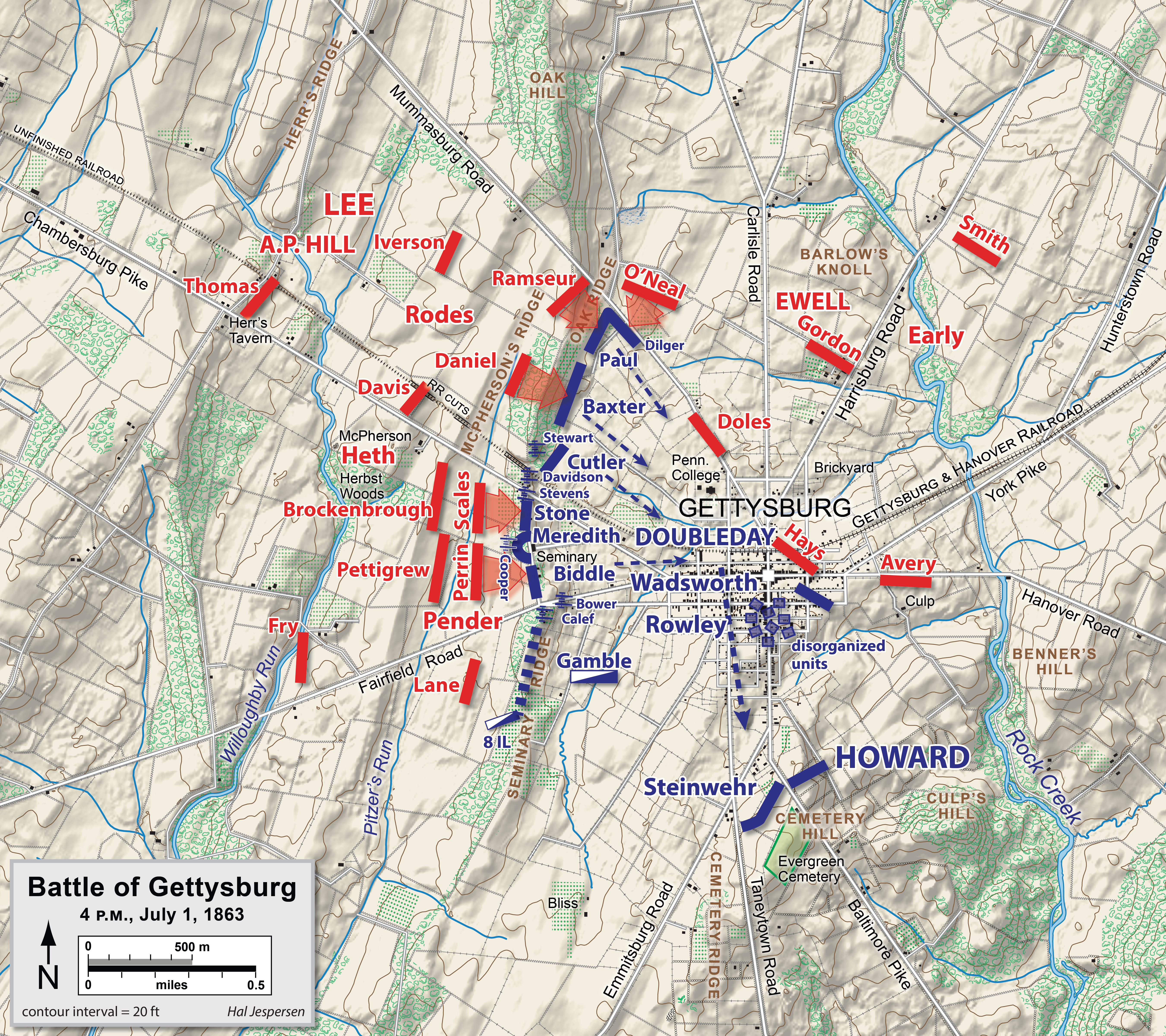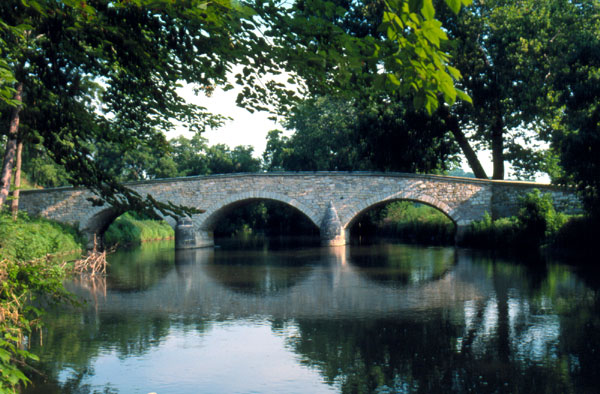|
Ministerium Of Pennsylvania
The Pennsylvania Ministerium was the first Lutheran church body in North America. With the encouragement of Henry Melchior Muhlenberg (1711–1787), the Ministerium was founded at a Church Conference of Lutheran clergy on August 26, 1748. The group was known as the "German Evangelical Lutheran Ministerium of North America" until 1792, when it adopted the name "German Evangelical Lutheran Ministerium of Pennsylvania and Adjacent States". The Pennsylvania Ministerium, also referred to as the Ministerium of Pennsylvania, was the source of the first Lutheran liturgy in America. Because of its unique place in the history of North American Lutheranism, the Ministerium continued to influence the church politics of Lutherans in America into the 20th century. History Lutherans in North America In 1638, Swedish settlers, colonizing north along the Delaware River from the New Sweden colony, established residences in what would become Philadelphia, at a place called ''Wiccaco'' by the lo ... [...More Info...] [...Related Items...] OR: [Wikipedia] [Google] [Baidu] |
Protestantism
Protestantism is a branch of Christianity that emphasizes Justification (theology), justification of sinners Sola fide, through faith alone, the teaching that Salvation in Christianity, salvation comes by unmerited Grace in Christianity, divine grace, the priesthood of all believers, and the Bible as the sole infallible source of authority for Christian faith and practice. The five solae, five ''solae'' summarize the basic theological beliefs of mainstream Protestantism. Protestants follow the theological tenets of the Reformation, Protestant Reformation, a movement that began in the 16th century with the goal of reforming the Catholic Church from perceived Criticism of the Catholic Church, errors, abuses, and discrepancies. The Reformation began in the Holy Roman Empire in 1517, when Martin Luther published his ''Ninety-five Theses'' as a reaction against abuses in the sale of indulgences by the Catholic Church, which purported to offer the remission of the Purgatory, temporal ... [...More Info...] [...Related Items...] OR: [Wikipedia] [Google] [Baidu] |
William Penn
William Penn ( – ) was an English writer, religious thinker, and influential Quakers, Quaker who founded the Province of Pennsylvania during the British colonization of the Americas, British colonial era. An advocate of democracy and religious freedom, Penn was known for his amicable relations and successful treaties with the Lenape Native Americans who had resided in present-day Pennsylvania prior to European settlements in the state. Penn also owned at least twelve enslaved people at his Pennbury estate. In 1681, Charles II of England, King Charles II granted an area of land corresponding to the present-day U.S. states of Pennsylvania and Delaware to Penn to offset debts he owed Penn's father, the admiral and politician William Penn (Royal Navy officer), Sir William Penn. The following year, Penn left England and sailed up Delaware Bay and the Delaware River, where he founded Philadelphia on the river's western bank. Penn's Quaker government was not viewed favourably by th ... [...More Info...] [...Related Items...] OR: [Wikipedia] [Google] [Baidu] |
Lutheran Theological Seminary At Gettysburg
The Lutheran Theological Seminary at Gettysburg (Gettysburg Seminary) was a seminary of the Evangelical Lutheran Church in America (ELCA) in Gettysburg, Pennsylvania Gettysburg (; ) is a borough (Pennsylvania), borough in Adams County, Pennsylvania, United States, and its county seat. As of the 2020 United States census, 2020 census, the borough had a population of 7,106 people. Gettysburg was the site of .... It was one of seven ELCA seminaries, one of the three seminaries in the Eastern Cluster of Lutheran Seminaries, and a member institution of the Washington Theological Consortium. It was founded in 1826 under prominent but controversial theologian and professor Samuel Simon Schmucker (1799-1873) for the recently organized Evangelical Lutheran General Synod of the United States of America, General Synod of the Evangelical Lutheran Church in the United States. The seminary was the oldest continuing Lutheran seminary in the United States until it was merged on July 1, 2 ... [...More Info...] [...Related Items...] OR: [Wikipedia] [Google] [Baidu] |
Samuel Simon Schmucker
Samuel Simon Schmucker (February 28, 1799 – July 26, 1873) was a German-American Lutheran pastor and theologian. He was integral to the founding of the Lutheran church body known as the General Synod, as well as the oldest continuously operating Lutheran seminary ( Gettysburg Seminary) and college in North America ( Gettysburg College). Later in his career, Schmucker became a controversial figure because of his theological positions, in particular his approach to the Lutheran Confessions. Outside of the church, Schmucker was a noted abolitionist. Early life Samuel Simon Schmucker was born in 1799 in Hagerstown, Maryland. His father, Johann Georg Schmucker, was a German immigrant and an ordained pastor in the Pennsylvania Ministerium. Samuel Schmucker showed a promising intellect at a young age, and entered the University of Pennsylvania at age 15. After teaching briefly at the York Academy, Schmucker went on a missionary journey to the western frontier of Kentucky and Ohio ... [...More Info...] [...Related Items...] OR: [Wikipedia] [Google] [Baidu] |
Evangelical Lutheran General Synod Of The United States Of North America
The Evangelical Lutheran General Synod of the United States of America, commonly known as the General Synod, was a historical Lutheran denomination in the United States. Established in 1820, it was the first national Lutheran body to be formed in the U.S. and by 1918 had become the third largest Lutheran group in the nation. In 1918, the General Synod merged with other Lutheran denominations to create the United Lutheran Church in America. Both the General Synod and the United Lutheran Church are predecessor bodies to the contemporary Evangelical Lutheran Church in America. History The General Synod was organized in 1820 at Hagerstown, Maryland, as a union or federation of four regional synods: the Pennsylvania Ministerium, the North Carolina Synod, the New York Ministerium, and the Synod of Maryland and Virginia. The Pennsylvania Ministerium had suggested the creation of a general synod two years earlier and took the lead in organizing it. The Joint Synod of Ohio and the Tenne ... [...More Info...] [...Related Items...] OR: [Wikipedia] [Google] [Baidu] |
Hagerstown, Maryland
Hagerstown is a city in Washington County, Maryland, United States, and its county seat. The population was 43,527 at the 2020 United States census, 2020 census. Hagerstown ranks as Maryland's List of municipalities in Maryland, sixth-most populous incorporated city and is the most populous city in the Western Maryland, Maryland Panhandle. Hagerstown anchors the Hagerstown metropolitan area extending into West Virginia. It makes up the northwesternmost portion of the Washington–Baltimore combined statistical area in the heart of the Great Appalachian Valley. The population of the metropolitan area in 2020 was 293,844. Greater Hagerstown was the fastest-growing metropolitan area in the state of Maryland and among the fastest growing in the United States, as of 2009. [...More Info...] [...Related Items...] OR: [Wikipedia] [Google] [Baidu] |
Ministerium Of New York
The New York Ministerium, also known as the Ministerium of New York, was an early Lutheran synod founded in 1786 in the U.S. state of New York. Throughout its history there were theological controversies that led to congregations withdrawing from it to form new synods. In 1917, it became part of the United Lutheran Church in America, which was one of the predecessor bodies of today's Evangelical Lutheran Church in America. History Starting in 1640, the Lutheran Church in New Netherland had formed two Lutheran congregations in New York City and Albany by about 1690. The missionary Justus Falckner oversaw expansion starting in the early 18th century, resulting in 14 congregations under his care. His successor, Wilhelm Christoph Berkenmeyer, created an assembly of pastors and lay delegates in 1835 to handle issues arising in the congregations, but the assembly met only once. In 1786, John Christopher Kunze led efforts to create the New York Ministerium at an assembly in Albany, N ... [...More Info...] [...Related Items...] OR: [Wikipedia] [Google] [Baidu] |
Frederick Augustus Conrad Muhlenberg
Frederick Augustus Conrad Muhlenberg (; January 1, 1750 – June 4, 1801) was an American minister and politician who was the first speaker of the United States House of Representatives from 1789 to 1791 and again from 1793 to 1795. Muhlenberg served as the first dean of the United States House of Representatives as well. A member of the Federalist Party, he was delegate to the Pennsylvania state constitutional convention and a member of the U.S. House of Representatives from Pennsylvania and a Lutheran pastor by profession, Muhlenberg was born in Trappe, Pennsylvania. His home, known as the Speaker's House, is now a museum and is currently undergoing restoration to restore its appearance during Muhlenberg's occupancy. Early life and education Muhlenberg was born in Trappe, Pennsylvania, the son of Anna Maria (Weiser) and Heinrich Melchior Mühlenberg. His father, an immigrant from Germany, was considered the founder of the Lutheran Church in North America. His maternal gra ... [...More Info...] [...Related Items...] OR: [Wikipedia] [Google] [Baidu] |
Eric W
The given name Eric, Erich, Erikk, Erik, Erick, Eirik, or Eiríkur is derived from the Old Norse name ''Eiríkr'' (or ''Eríkr'' in Old East Norse due to monophthongization). The first element, ''ei-'' may be derived from the older Proto-Norse ''* aina(z)'', meaning "one, alone, unique", ''as in the form'' ''Æ∆inrikr'' explicitly, but it could also be from ''* aiwa(z)'' "everlasting, eternity", as in the Gothic form '' Euric''. The second element ''- ríkr'' stems either from Proto-Germanic ''* ríks'' "king, ruler" (cf. Gothic '' reiks'') or the therefrom derived ''* ríkijaz'' "kingly, powerful, rich, prince"; from the common Proto-Indo-European root * h₃rḗǵs. The name is thus usually taken to mean "sole ruler, autocrat" or "eternal ruler, ever powerful". ''Eric'' used in the sense of a proper noun meaning "one ruler" may be the origin of '' Eriksgata'', and if so it would have meant "one ruler's journey". The tour was the medieval Swedish king's journey, when new ... [...More Info...] [...Related Items...] OR: [Wikipedia] [Google] [Baidu] |
University Of Halle
Martin Luther University Halle-Wittenberg (), also referred to as MLU, is a public research university in the cities of Halle and Wittenberg. It is the largest and oldest university in the German state of Saxony-Anhalt. MLU offers German and international (English) courses leading to academic degrees such as BA, BSc, MA, MSc, doctoral degrees, and habilitation. The university was created in 1817 through the merger of the University of Wittenberg (founded in 1502) and the University of Halle (founded in 1694). MLU is named after Protestant reformer Martin Luther, who was a professor in Wittenberg. Today, the university campus is located in Halle, while ''Leucorea Foundation'' in Wittenberg serves as MLU's convention centre. History University of Wittenberg (''Universität Wittenberg'') was founded in 1502 by Frederick the Wise, Elector of Saxony to propagate the principles of Renaissance humanism. The foundation of the university was heavily criticized, especially wh ... [...More Info...] [...Related Items...] OR: [Wikipedia] [Google] [Baidu] |
Pietism
Pietism (), also known as Pietistic Lutheranism, is a movement within Lutheranism that combines its emphasis on biblical doctrine with an emphasis on individual piety and living a holy Christianity, Christian life. Although the movement is aligned with Lutheranism, it has had a tremendous impact on Protestantism worldwide, particularly in North America and Europe. Pietism originated in modern Germany in the late 17th century with the work of Philipp Spener, a Lutheran theologian whose emphasis on personal transformation through spiritual rebirth and renewal, individual devotion, and piety laid the foundations for the movement. Although Spener did not directly advocate the Quietism (Christian contemplation), quietistic, legalistic, and semi-separatist practices of Pietism, they were more or less involved in the positions he assumed or the practices which he encouraged. Pietism spread from Germany to Switzerland, the rest of German-speaking Europe, and to Scandinavia and the Balt ... [...More Info...] [...Related Items...] OR: [Wikipedia] [Google] [Baidu] |
Pastor
A pastor (abbreviated to "Ps","Pr", "Pstr.", "Ptr." or "Psa" (both singular), or "Ps" (plural)) is the leader of a Christianity, Christian congregation who also gives advice and counsel to people from the community or congregation. In Lutheranism, Catholicism, Eastern Orthodoxy, Oriental Orthodoxy and Anglicanism, pastors are always Ordination, ordained. In Methodism, pastors may be either License to Preach (Methodist), licensed or ordained. The New Testament typically uses the words "bishops" (Acts 20:28) and "presbyter" (1 Peter 5:1) to indicate the ordained leadership in early Christianity. Likewise, Peter instructs these particular servants to "act like Shepherd, shepherds" as they "oversee" the flock of God (1 Peter 5:2). The words "bishop" and "presbyter" were sometimes used in an interchangeable way, such as in Titus 1:5-6. However, there is ongoing dispute between branches of Christianity over whether there are two Holy orders, ordained classes (presbyters and deacons), ... [...More Info...] [...Related Items...] OR: [Wikipedia] [Google] [Baidu] |







